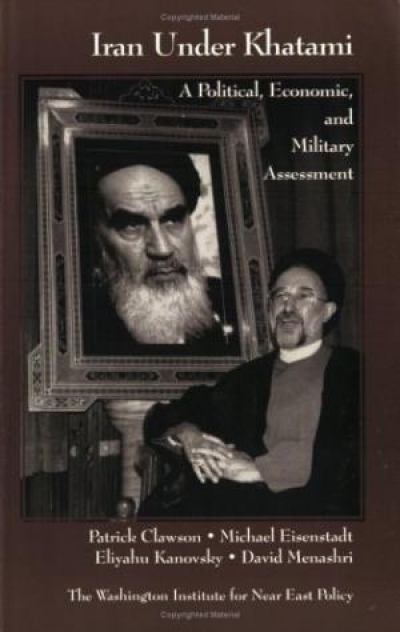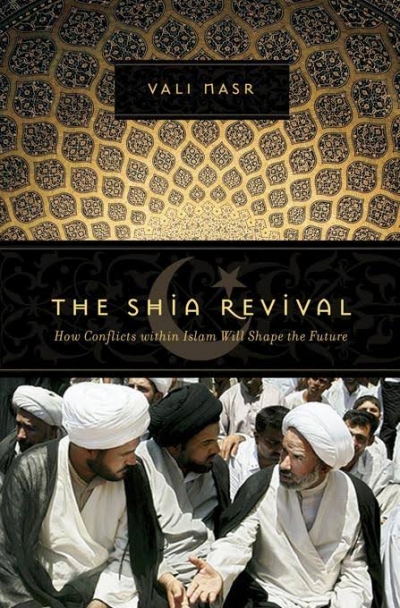



Sectarianism exists on both sides of the divide. It is imperative to understand the root problems to overcome it, urges Abu Dharr.
How historical baggage has smothered Muslim minds to sink into sectarianism while ignoring the teachings of the Qur’an and the Sunnah.
In the midst of an existential struggle for survival, Russian criticism of Saudi Arabia’s deplorable human rights record touched the kingdom’s raw nerve.
Muslims occupy a vast swathe of the earth’s surface. From Morocco in the west to Indonesia in the southeast, Muslims reside in a part of the globe that acts as a bridge between Europe and the vast archipelago of Southeast Asia.
The world is babbling with news about Iran being on the threshold of going nuclear, in a military sense. Israeli words are coming out of American mouths. US Secretary of Defense Leon Panetta told CBS news that Iran could build a nuclear bomb in a year or less (music to Israeli ears).
Sectarianism has been a time tested tool in the hands of illegitimate rulers since the Islamic institution of khilafah was subverted into mulukiyah nearly 1,400 years ago. Today, the illegitimate rulers of Bahrain, Qatar, Kuwait, the United Arab Emirates and Saudi Arabia are using this weapon to divert attention away from their oppressive policies and subservience to the West and to Zionist Israel.
There is no doubt that today’s Muslims are more divided than they have ever been. The divisions are so prevalent that in the political and economic sense of the word the Muslims of the world have ceased to be the “ummah” spoken about in the Qur’an and the Sunnah. A closer look at the condition of today’s Muslims and we realize that these divisions are related to disputes and disagreements that have become throughout the ages what appear to be irreconcilable differences.
This year the Islamic Revolution in Iran turns 31; this means 31 years of independence, change, struggle, and accomplishments. What has emerged through the course of these 31 years, which in the lifespan of nations is still tiny, is the fact that Islamic Iran is Zionism and imperialism’s number one enemy...
Iran Under Khatami: A Political, Economic, and Military Assessment by Patrick Clawson et al. Pub: The Washington Institute for Near East Policy, Washington DC, 1998. Pp. 114. Pbk. US$19.95.
In recent months, there has been a worrying rise in violent salafi sectarianism in the northern Lebanese port-city of Tripoli, a dangerous new development in the country’s delicate communal balance. KHALIL FADL discusses the background and potential of this trend among Lebanese Sunnis.
The Shia Revival: How Conflicts within Islam Will Shape the Future by Vali Nasr. Pub: W. W. Norton & Co., New York, 2006. Hbk: US $25.95.
In June 2007, the Islamic Centre of England hosted a conference on “Proximity amongst Islamic schools of thought: a necessity for Muslims in the contemporary era” (see Crescent International, July 2007). This is the paper presented IQBAL SIDDIQUI, a researcher at the Institute of Contemporary Islamic Thought (ICIT) and editor of Crescent International.
1June turned out to be a month of speeches and conferences for this writer. It began with Imam Khomeini memorial programmes in the UK. These were followed by a visit to South Africa, which was as special as always, and where I spoke at a conference organized by the local office of Crescent International, along with Zafar Bangash and Imam Muhammad al-Asi, as well as speaking at a couple of smaller events. At end of the month there was a major conference on Islamic unity in London, attended by a number of senior figures from around the world, at which I also presented a paper. Inevitably, discussions were dominated by two or three topics: Iraq and the tragic blood-letting there; the problem of sectarianism; and, because they were in the news at the time, the recent developments in Palestine in particular.
As the tragedy of Iraq draws attention to the problem of sectarianism in the Muslim world, the Majma al-Taqrib in Tehran has led efforts against this problem. IQBAL SIDDIQUI discusses issues that arose during its latest conference, at the Islamic Centre of England, in London, on June 23 & 24.
That the Muslim world is engulfed in numerous crises is not in doubt; what is debated is who is responsible for this state of affairs and how to rectify it. There are some—Muslims and non-Muslims—who put all the blame on the Muslims; others say it is the direct result of colonialism and continued foreign interference in the internal affairs of Muslims
Something easy to get is easy to lose, as the Japanese say. Their neighbors the Chinese would say: the lone sheep is in danger of the wolf. The ancient wisdom of these people is not lost on Muslims of Imam Husain’s heritage. Our only Islamic Revolution and Islamic state (as imperfect as they appear from time to time) were not easy to come by; and therefore should not be easily relinquished.
Political commentators observing developments in the Muslim world have a tendency to project their own fears and prejudices onto the Ummah. This is particularly true of Westerners who like to speak about the “moderate” majority of Muslims -- ie. those who are not anti-American, and welcome the US’s civilizing and democratizing mission against “Islamic extremism”.
It is difficult to say which is worse: nationalism or sectarianism in the Ummah. The ruling elites in the Muslim world exploit both these weaknesses to advance their own nefarious agendas. Just as nationalism is alien to the political culture of Islam, so sectarianism is the very antithesis of Muslim unity.
It should have been “justice done” by Muslims but it has been turned into “the rise of sectarianism” by the zionist-imperialist masters of the world. Saddam Hussain was used by his imperialist handlers as an agent par excellence during his bloody life, exploited further in his gory death.
Painful though it is to admit it (it would be so much easier to focus on the successful resistance to the US occupation), it is undeniable that the communal strife in Iraq is resulting in a frightening increase in sectarian tensions throughout the Muslim world.


